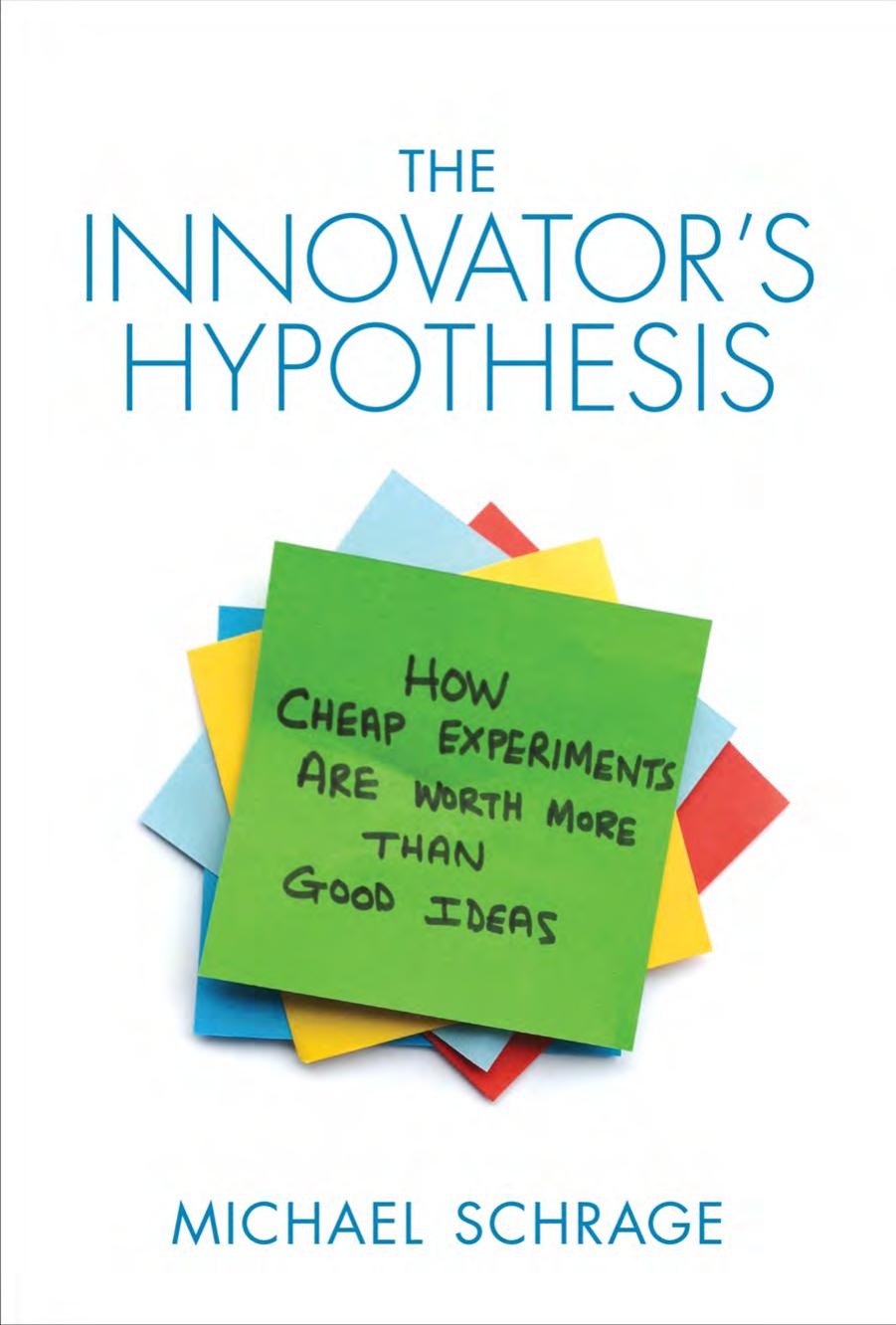The Innovator's Hypothesis: How Cheap Experiments Are Worth More than Good Ideas by Michael Schrage

Author:Michael Schrage [Schrage, Michael]
Language: eng
Format: epub, mobi, pdf
ISBN: 9780262028363
Publisher: The MIT Press
Published: 2014-09-12T00:00:00+00:00
10 Key Steps to the 5×5
A simple and straightforward ten-step program describes how to bring the benefits of 5×5 X-teams to your organization. The methodology’s been tested in entrepreneurial and established organizations all over the world. Flexible, versatile, and powerful, these principles provide high-probability paths to measurable success. The results—experimentally and organizationally—will impress.
The spirit of the guidelines is more important than the letter. Five key phrases best capture that spirit:
• Make compelling business hypotheses simple and simple business hypotheses compelling.
The business potential of your hypotheses should be easy to understand. They address fundamental business questions and concerns. The importance of these hypotheses needs to be obvious, and they should invite and excite curiosity. Ideally, they will spark innovation conversations that your organization needs to have. People want to see what experiments you’ll devise to test them.
• Seek to perform simple experiments fast.
Make sure experiments are accessible and explainable; no MBA or PhD necessary. Impatience is a virtue Most 5×5 experiments take a few weeks to run, but a few may take only a few days, or even a few hours. Could they be more complex, comprehensive, or sophisticated? Of course—but avoid that trap. The 5×5 mission is designing experiments that generate remarkably useful information remarkably fast. Speed and simplicity are reinforcing virtues.
• Seek to perform fast experiments cheap.
Speed and simplicity are important. So is cost. Your experiments are lean, mean, and cheap. Very cheap. In fact, they couldn’t be done much cheaper. Their cheapness should inspire admiring disbelief and compliments from everyone who sees them. The single best reason for spending more is to make the experiments simpler, faster, or both.
• Seek results that speak for themselves.
Simple and fast experiments should yield clear and compelling results. Minimize confusion. Avoid nuance, subtlety, ambiguity, or shades of gray. The outcomes make obvious what should—or shouldn’t—be learned next. Whatever the results, they remind and reaffirm why the business hypotheses are important.
Here’s an example: An Internet news site made viewers sit through a 12-second advertisement before allowing access to the desired content. Surveys and reviews showed that this alienated many site visitors. The service devised a simple, quick, and clear advertising experiment. The site displayed two advertisements and asked visitors to choose which one to watch before proceeding. This experiment not only provided useful information to advertisers, but it evolved into an advertising format.
• The best, most influential, and most important products of simple, fast, cheap, and compelling experiments aren’t the results, but rather the experimenters.
Developing insightful business hypotheses and innovative experiments is key. Developing insightful and innovative people, however, is even more important. The 5×5 methodology is more about investment in human capital and capabilities than it is about innovation and experimentation.
Successful 5×5s make people more effective innovators. And more effective innovators mean more effective innovations. Faster. Better. Cheaper. Even moderately successful 5×5 experiences attract wider attention. The 5×5 is a viral innovation methodology. It’s infectiously innovative.
Credible outreach is essential to attracting attention and support. Don’t overpromise. Rein in grand ambitions. Favor a sharper focus.
Download
The Innovator's Hypothesis: How Cheap Experiments Are Worth More than Good Ideas by Michael Schrage.mobi
The Innovator's Hypothesis: How Cheap Experiments Are Worth More than Good Ideas by Michael Schrage.pdf
This site does not store any files on its server. We only index and link to content provided by other sites. Please contact the content providers to delete copyright contents if any and email us, we'll remove relevant links or contents immediately.
| Bookkeeping | Business Mathematics |
| Business Writing | Communications |
| Decision Making | Negotiating |
| Project Management | Running Meetings & Presentations |
| Secretarial Aids & Training | Time Management |
| Training |
Nudge - Improving Decisions about Health, Wealth, and Happiness by Thaler Sunstein(7711)
Deep Work by Cal Newport(7089)
Principles: Life and Work by Ray Dalio(6458)
The Doodle Revolution by Sunni Brown(4769)
Factfulness: Ten Reasons We're Wrong About the World – and Why Things Are Better Than You Think by Hans Rosling(4745)
Eat That Frog! by Brian Tracy(4543)
Thinking in Bets by Annie Duke(4229)
Hyperfocus by Chris Bailey(4123)
Visual Intelligence by Amy E. Herman(3787)
Writing Your Dissertation in Fifteen Minutes a Day by Joan Bolker(3731)
Ogilvy on Advertising by David Ogilvy(3625)
Hidden Persuasion: 33 psychological influence techniques in advertising by Marc Andrews & Matthijs van Leeuwen & Rick van Baaren(3569)
How to Win Friends and Influence People in the Digital Age by Dale Carnegie & Associates(3566)
How to win friends and influence people by Dale Carnegie(3478)
The Pixar Touch by David A. Price(3442)
Schaum's Quick Guide to Writing Great Short Stories by Margaret Lucke(3383)
Deep Work: Rules for Focused Success in a Distracted World by Cal Newport(3239)
Work Clean by Dan Charnas(3125)
The Slow Fix: Solve Problems, Work Smarter, and Live Better In a World Addicted to Speed by Carl Honore(3012)
